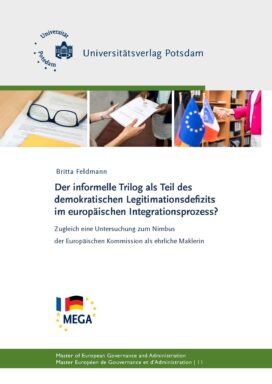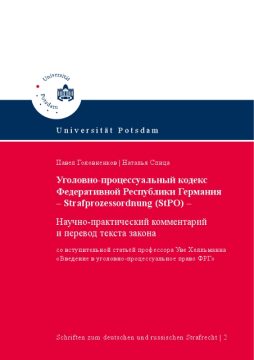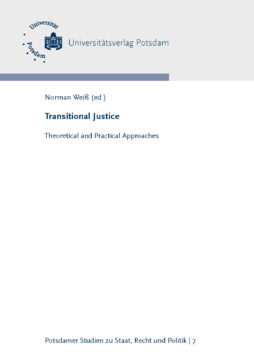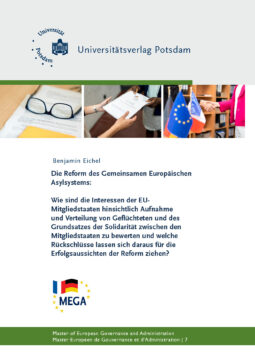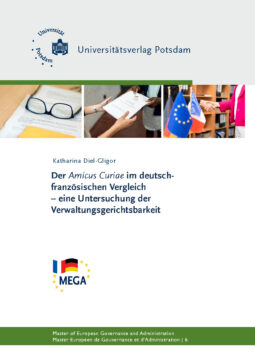This study is the first to examine the impact of the European Commission’s participation in the early informal trilogue on the legislative procedure of the European Union (EU), on the institutional balance between the European Parliament (Parliament), the Council of the EU (Council) and the European Commission (Commission) as well as on the democratic legitimacy of the EU legislative procedure.
Starting from the ordinary legislative procedure regulated in Article 294 TFEU, via the origins and development of the trilogue, the procedural and functional changes resulting from the trilogue and its shift are traced and the consequences resulting from this are worked out.
Regarding the EU legislative procedure, it is stated that no more than half of the stages available for the legislative process are still being used and that the legislative decision-making process is being shifted from the legally regulated procedure between two co-legislators to the unregulated trilogue.
The changes to the institutional balance are closely linked to the shift of the trilogue and thus of the legislative decision-making process. It was moved from the formal trilogue at the end of the procedure, which is regulated by law, to the informal, unregulated trilogue at the beginning of the procedure. With such fundamental changes, it makes sense to consider the changed context, the changes for those involved in the decision-making process and the role actually played by the Commission in the trilogue. As part of this, the Commission’s reputation as an honest broker will also be reviewed. As it turns out, this reputation is not justified (any more). The Commission has taken an active part in the decision-making process and thus (co-)assumed a function that primary law reserves for the Council and the EP as co-legislators. Its participation in the trilogue therefore also means a considerable intervention in the institutional balance.
The effects on the democratic legitimacy of the trilogue and the legislative process are at least of the same importance. The participation of the Commission, which has no democratic legitimacy through elections, in the trilogue creates a legitimacy gap in the trilogue. This has an impact on the entire EU legislative process. As a result, the legitimacy deficit of the EU legislative process increases considerably simply due to the fact that the Commission participates in the trilogue. A development that runs counter to – or even destroys – the efforts of past treaty amendments to put the EU on a more democratic basis.

